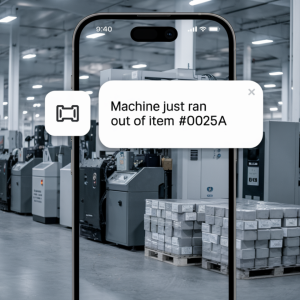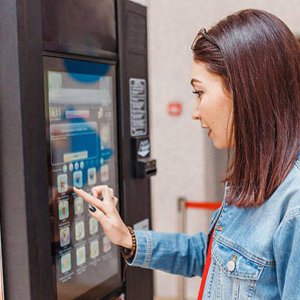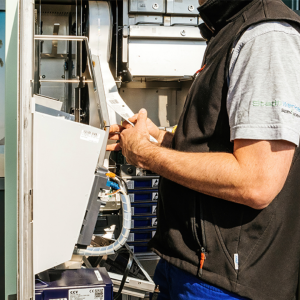Do You Need To Register An LLC Or Other Business Entity To Own Or Operate Vending Machines In Alabama

Introduction: Operating a Vending Machine Business in Alabama
One of the first questions new operators face is how to structure their business entity. Should you operate as a sole proprietor, form an LLC, or establish a corporation? The decision affects liability, taxes, and how your business interacts with state and local agencies. For example, an LLC may protect your personal assets if a claim arises from your vending operations, while a sole proprietorship is simpler but offers less protection.
This resource explains how vending machine owners in Alabama can choose the right business structure and remain compliant with all state and local regulations. It covers topics such as entity options, licensing requirements, and tax obligations, along with a practical checklist for getting started. You will also learn how tools like Cloud software can help manage route data, sales tracking, and maintenance more efficiently.
For operators or companies interested in purchasing machines in quantity, please visit our commercial vending machines page to learn about options for bulk orders and enterprise-level supply support.
Clarifying the Entity Question: Is an LLC Required to Own Vending Machines in Alabama?
Before launching a vending operation in Alabama, it is important to understand that there is no legal requirement to form a Limited Liability Company (LLC) in order to own or operate vending machines. You may legally run your business as a sole proprietor, partnership, corporation, or LLC. The key differences lie in how each structure affects liability, taxes, and administrative duties.
What an LLC Means for Vending Operators
An LLC, or Limited Liability Company, is a business entity that separates your personal assets from your business obligations. Many small vending business owners choose this model because it offers protection if something goes wrong, such as a customer injury or a dispute with a property owner. With an LLC, your personal assets like your home or vehicle are typically shielded from business-related claims.
For vending entrepreneurs installing new vending machines across multiple locations, this structure can also make it easier to secure contracts and financing. Property owners and commercial landlords often prefer working with an entity that carries formal business registration and liability coverage.
No Legal Requirement, But Practical Advantages
Although the Alabama Department of Revenue does not require vending operators to form an LLC, the advantages are practical. Forming an LLC can simplify business banking, strengthen your professional reputation, and reduce risks when managing assets like food vending machines or pizza vending machine placed in public or commercial venues.
- Liability Protection: Keeps personal assets separate from business debts or claims.
- Professional Credibility: Makes it easier to negotiate placement contracts and wholesale agreements.
- Tax Flexibility: Offers multiple taxation options that may reduce your overall tax burden.
- Banking and Financing: Simplifies opening accounts or accessing capital for more machines.
Operating Without an LLC
If you choose to operate as a sole proprietor, you still need to comply with Alabama’s vending-machine licensing rules and business privilege licenses. Even a single machine installed in a commercial area must be properly licensed. Business registration and tax compliance are separate from entity formation, meaning every vending operator—LLC or not—must meet state and local requirements.
State-Level Licensing and Privilege Fees for Vending Machine Businesses in Alabama
In Alabama, vending machine owners must comply with state business licensing laws managed by the Alabama Department of Revenue (ADR). Most operators need a business privilege license and must pay a vending machine tax. The license applies to all coin-operated or electronic vending units that sell products in public or commercial spaces.
Alabama Code § 40-12-176 Explained
Under Alabama Code § 40-12-176, each vending machine operator must report gross sales and keep records open for inspection. This law ensures that all machines, whether they sell snacks, drinks, or other items, are properly reported for tax purposes. Machines placed in private homes for personal use are the only exception.
Key Operator Responsibilities
- Obtain a business privilege license from the Alabama Department of Revenue or county office.
- Pay the annual license fee based on gross sales or the number of machines.
- Maintain accurate sales records and keep them available for inspection.
- Display any required decals or identification tags on each machine.
The Alabama Department of Revenue’s Business and License Section lists forms, fees, and procedures for vending operators. Securing this license before placing machines is essential. It validates your business and helps you avoid penalties or retroactive taxes later.
Local Business Licenses and Vending-Machine Decals in Alabama
In addition to state licensing, Alabama vending machine operators must comply with local business license requirements. Counties and cities often have their own procedures and fees. These local rules apply to any vending machine placed in a public or commercial setting, regardless of business size.
County Licensing Requirements
Each county in Alabama may require a separate vending machine business license. For example, Mobile County uses an affidavit process where operators must register each machine and obtain a vending machine privilege decal. This decal confirms that the annual license fee has been paid. County probate or license offices manage these applications and collect the related fees.
In most cases, you must file your local application even if you already hold a state business privilege license. The Alabama Department of Revenue notes that local licensing operates independently, meaning counties can set additional rules or inspection standards. It is good practice to contact the county revenue office before placing any new vending machines within their jurisdiction.
City and Municipal Licensing
Many Alabama cities require separate vending machine permits. The City of Jacksonville, for instance, lists vending businesses under its license schedule and charges a fee per machine. Operators must renew this license each year to remain in compliance. These fees vary between cities and may depend on the number of food vending machines or pizza vending machine operating within city limits.
City licensing offices often request proof of your state or county registration, business name, and contact information. Some municipalities also require that each machine display a decal or numbered tag issued by the city clerk or finance office. These tags allow local inspectors to confirm that your machines are registered and properly licensed.
Verifying Local Compliance
Before expanding into new locations, contact both the county and city authorities where your machines will be placed. Confirm their current licensing fees, renewal schedules, and decal rules. Even when you are fully registered at the state level, missing a local requirement can result in fines or the removal of your machines. Staying current with county and municipal licensing helps keep your business fully compliant and ready to operate without interruption.
Entity Formation for Vending Machine Businesses in Alabama: LLC, Corporation, or Sole Proprietor
Choosing the right business structure is one of the most important decisions for any vending operator. Your choice affects liability, taxes, and how you present yourself to property owners and financial institutions. In Alabama, you can operate as a sole proprietor, form a corporation, or establish a Limited Liability Company (LLC). Each option has benefits and tradeoffs depending on your business goals and level of risk.
Benefits of Forming an LLC
Many vending business owners prefer forming an LLC. It separates personal and business assets, protecting your savings and property from business debts or legal claims. This structure also simplifies contract negotiations with property owners who often prefer working with registered entities. An LLC makes it easier to open business bank accounts, access financing, and manage funds for machine repairs, restocking, and expansion.
For operators running several new vending machines across multiple locations, an LLC offers a professional structure that supports growth. It signals stability and makes it easier to manage agreements related to machine placement, commissions, and maintenance. The setup cost is modest, and Alabama’s online filing system through the Secretary of State allows for quick registration.
Advantages and Limits of a Corporation
A corporation provides strong liability protection and is suitable for larger operations or businesses seeking investors. However, it involves more administrative work, annual reporting, and formal recordkeeping. Some corporations elect S-Corp status for tax flexibility. For most independent operators or small-scale vending routes, this level of structure may be more complex than needed.
Operating as a Sole Proprietor
Running your vending business as a sole proprietor is the simplest and cheapest option. You can start under your own name and report income on your personal tax return. This model works well if you operate just a few food vending machines or ramen vending machine in limited areas. The downside is personal exposure to liability. If a dispute or accident occurs, your personal assets are not protected.
Balancing Cost and Risk
Each structure has different start-up costs and administrative demands. An LLC offers balanced protection with moderate cost, while a corporation fits larger enterprises with complex financing needs. Sole proprietorships suit small operators but carry higher personal risk. Your decision should reflect how much you plan to invest, how many machines you manage, and whether you aim to expand into more locations.
Tax and Regulatory Issues for Vending Machines in Alabama
Running a vending machine business in Alabama involves more than licensing. Operators must also comply with specific tax and regulatory requirements that apply to vending equipment and the items sold. Understanding these rules helps you avoid penalties and maintain smooth business operations.
Sales and Excise Taxes
Vending operators are responsible for collecting and remitting state and local sales tax on products sold through their machines. Alabama law treats the vending machine operator as the retailer, which means taxes apply to the total price charged to customers. Items such as snacks, soft drinks, and bottled water are taxable at the standard state rate unless local exemptions apply.
- Snack and beverage sales: Most food and drink items sold through vending machines are subject to sales tax.
- Tobacco or nicotine products: These items may also be subject to an excise tax in addition to sales tax.
- Reporting: Operators must file regular sales tax returns and maintain records that reflect all gross sales per machine.
Vending Machine Tax Rules
Alabama Code § 40-12-176 requires that every operator report gross sales and keep financial records available for inspection. Each vending machine must be licensed, and the total number of machines affects your license fee. Home-use machines placed in private residences remain exempt from these requirements.
- License Renewal: Vending licenses must be renewed each year by October 31 to remain valid.
- Record Keeping: Maintain detailed records of sales, receipts, and machine locations for at least three years.
- Gross Sales Statement: The Alabama Department of Revenue requires a sworn statement of gross receipts when you apply or renew your license.
Health and Safety Regulations
Operators of food vending machines or pizza vending machines that sell perishable items must also consider local health regulations. Some counties may require inspection or proof of compliance with food handling standards. It is best to contact the county health department before installing machines that dispense heated or fresh food.
Practical Compliance Tips
- Apply for both state and county licenses before placing any new vending machines in public areas.
- Keep all receipts, tax filings, and license copies in one accessible record system.
- Use Cloud software to track daily sales, monitor tax liability, and generate reports for renewals.
- Renew your business and machine licenses on time to avoid fines or machine shutdowns.
Tax and regulatory compliance are central to operating legally in Alabama. Keeping up with these obligations supports business stability and prevents costly disruptions to your vending routes.
Step-by-Step Checklist for Alabama Vending Machine Business Owners
Setting up a vending machine business in Alabama is straightforward if you follow each compliance step carefully. The process includes business formation, tax registration, and proper licensing. Use these steps to stay compliant and organized from the start.
Choose a Business Structure
Decide whether to operate as a sole proprietor, LLC, or corporation. An LLC offers liability protection and flexibility for growth. Register your chosen structure with the Alabama Secretary of State before beginning operations.
Obtain an EIN and Open a Business Bank Account
Apply for an Employer Identification Number (EIN) from the IRS. Use this number to open a separate business bank account. Keeping vending income and expenses apart from personal funds ensures accurate bookkeeping and liability protection.
Apply for Your State Business Privilege License
Under Alabama Code § 40-12-176, each vending operator must hold a valid business privilege license.
Contact the County License or Probate Office
Confirm local vending license and decal requirements. For example, Mobile County requires operators to file an affidavit and attach a decal to each machine placed in a public area. County rules often differ, so check before installing any new equipment.
Check with City Licensing Offices
Many cities, including Jacksonville, require their own vending business license and an annual renewal fee. Some may also collect a per-machine tax. Always verify local rules with the city clerk or revenue department before placement.
Register for Sales Tax Collection
File with the Alabama Department of Revenue to collect and remit sales tax on all vending transactions. Keep clear records of gross receipts for every machine and file returns on schedule to remain in good standing.
Comply with Health and Product Regulations
If your machines sell perishable or heated food, coordinate with the county health department. Machines that serve fresh meals or hot items must meet local sanitation and electrical safety standards.
Negotiate Placement Contracts
Use written agreements when placing machines on another property. Each contract should outline electricity use, commission structure, and maintenance duties. A formal agreement protects both the operator and the property owner.
Maintain Accurate Business Records
Keep a detailed log of machine serial numbers, earnings, and active locations. Store licenses, receipts, and renewals digitally using Cloud software for better organization and audit readiness.
Renew Licenses Annually
Most Alabama vending licenses expire on October 31 each year. Mark renewal dates in advance to prevent penalties or machine shutdowns. Keeping your licenses current ensures uninterrupted operation across all routes.
Following these steps helps establish a reliable and compliant vending business foundation in Alabama. It also builds trust with property owners, suppliers, and financial institutions.
Common Pitfalls in Alabama Vending Machine Businesses and How to Avoid Them
Even experienced vending operators can make simple mistakes that lead to fines or business interruptions. Understanding these common issues helps prevent costly setbacks and ensures smoother operations across your vending routes.
Ignoring Licensing Requirements
Some new operators assume that small vending routes do not require licensing. Alabama Code § 40-12-176 states that any machine placed in a public or commercial space must be licensed. Only machines kept in private homes for personal use are exempt. Failing to register each machine can lead to penalties or seizure of equipment.
Mixing Personal and Business Finances
Some operators form an LLC but continue to use personal bank accounts for business income. This practice eliminates the liability protection that an LLC provides. Always maintain a separate business bank account and handle all deposits, withdrawals, and expenses through that account only.
Overlooking Local City or County Rules
State registration alone does not satisfy all requirements. Counties and cities may have their own vending permits, decals, or inspection processes. Contact the local business license or revenue office before installing machines in new locations. Failing to do so can result in fines or machine removal.
Selling Restricted or Regulated Products
Machines that sell tobacco, nicotine, or alcohol must comply with Alabama’s product-specific laws. Section § 28-11-6.1 prohibits vending tobacco in areas accessible to minors. Always confirm your product category with the Alabama Department of Revenue or local law enforcement before installation.
Neglecting Record Keeping
Incomplete records are a common source of compliance issues. Alabama law requires operators to keep detailed logs of gross sales, machine counts, and machine locations. Use digital tools or Cloud software to record transactions and prepare for audits. Good record keeping also improves route management and profit tracking.
When It Makes Sense to Form an LLC or Corporation for Your Vending Business
While Alabama law does not require an LLC or corporation to operate vending machines, forming one can offer real benefits depending on your business size and goals. The right structure helps you manage risk, attract partners, and operate more efficiently across multiple locations.
When You Plan to Expand
If you intend to operate several new vending machines across Alabama, forming an LLC or corporation provides stability and scalability. As your route grows, you will deal with more contracts, maintenance schedules, and financial transactions. A formal entity supports consistent accounting, makes it easier to hire contractors, and simplifies partnerships or resale opportunities later.
When You Work With Property Owners
Landlords, franchise chains, and business centers often prefer signing placement contracts with registered entities. An LLC or corporation gives you more credibility and reassurance to property owners. It also helps streamline agreements covering commission payments, electricity use, and equipment responsibility.
When You Need Liability Protection
Liability protection is one of the strongest reasons to form an LLC. If a machine malfunctions or causes injury, the business, not you personally, is responsible. This separation protects your home, savings, and other assets from business debts or legal claims. It is especially important for machines that sell hot or perishable products in public areas.
When You Seek Financing or Investors
Financial institutions and investors typically work with registered businesses. An LLC or corporation provides transparency in ownership and financial reporting. This can improve your chances of obtaining financing for additional machines, route purchases, or software upgrades like Cloud software to manage sales and inventory.
When You Want Long-Term Flexibility
A formal business structure allows you to adjust tax classifications, add members, or sell your operation more easily. It gives you a clear path for succession planning and expansion beyond Alabama if your routes grow regionally. An LLC or corporation is a practical step once your vending operation becomes more than a side business.
Conclusion
Owning and operating vending machines in Alabama can be a rewarding business when managed with proper planning and compliance. You are not required by law to form an LLC to run your vending operations, but doing so can protect your personal assets, improve your credibility, and support long-term growth. Many successful operators choose this structure once they expand into multiple locations or manage several new vending machines across the state.
Every vending business, regardless of its structure, must meet the Alabama Department of Revenue’s licensing and tax requirements. This includes obtaining the proper business privilege license under Alabama Code § 40-12-176, maintaining sales records, and renewing licenses each year. County and city rules often add extra steps such as decals, affidavits, or health approvals.
Using digital tools like Cloud software simplifies operations, from tracking sales and tax data to monitoring machine performance in real time. Reliable software support and strong organization reduce risk and keep your vending routes efficient.
For investors or companies looking to purchase machines in quantity, visit our commercial vending machines page for information about bulk orders, financing options, and enterprise support. Whether you operate a single route or manage hundreds of machines, maintaining compliance and structure ensures your business remains profitable and professional in Alabama’s growing vending market.














